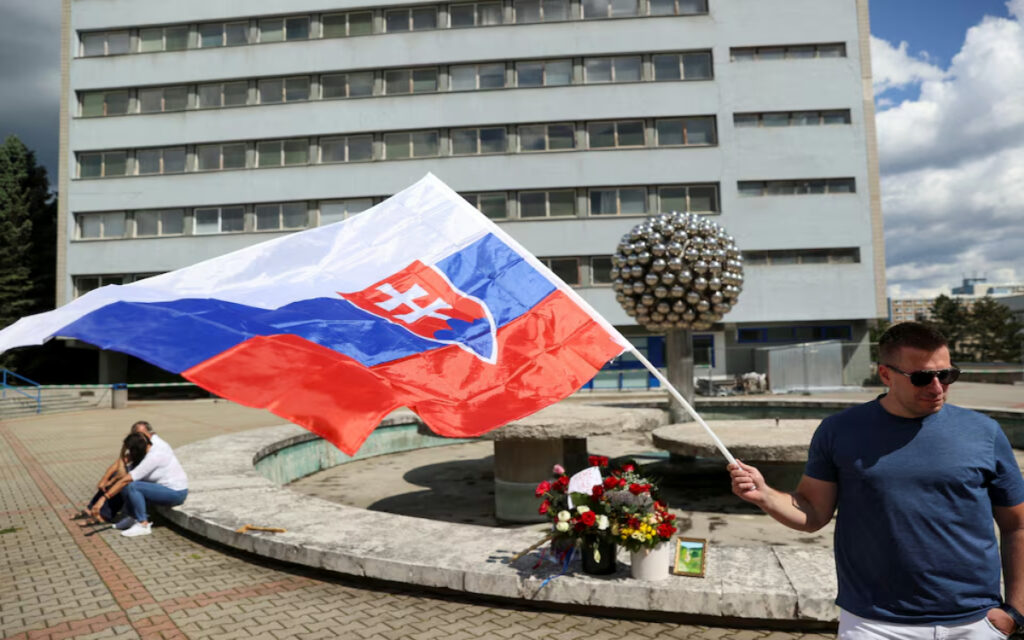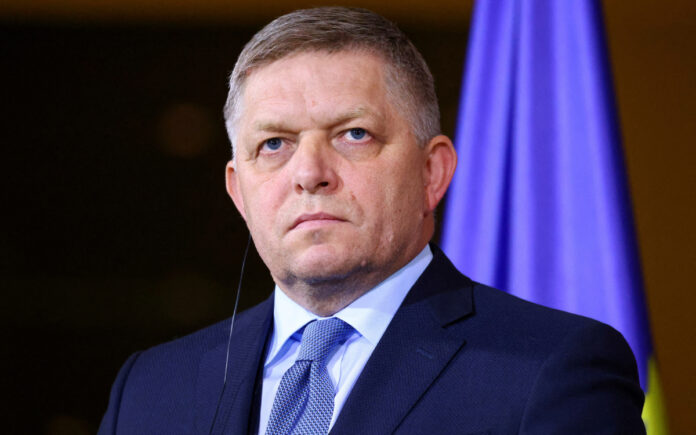Banská Bystrica: Slovak Prime Minister Robert Fico’s health condition has stabilized but remains serious following an assassination attempt that sent shockwaves across Europe, his deputy stated on Sunday, four days after the incident.
Deputy Prime Minister Robert Kalinak provided an update outside the hospital in Banska Bystrica, central Slovakia, where Fico is receiving treatment. “The worst that we feared had passed, at least for the time being,” Kalinak informed reporters.
Fico was shot on Wednesday in an attack that raised concerns about the polarized state of politics in the central European nation of 5.4 million people. Kalinak emphasized that Fico’s condition was still too critical to consider transferring him to a hospital in the capital.
“The prime minister remains in a very serious condition and will continue under the care of doctors at the Banska Bystrica hospital,” Kalinak added, expressing cautious optimism.
This incident marks the first major assassination attempt on a European political leader in over two decades.

Also Read | Iranian President Ebrahim Raisi’s Helicopter Involved in ‘Hard Landing’ Incident in Azerbaijan: Reports
Suspect Charged with Attempted Murder
The Slovak Specialised Criminal Court ordered on Saturday that the suspect, identified as Juraj C., remain in custody after being charged with attempted murder.
Reports from local media indicate that the suspect is a 71-year-old former security guard at a shopping mall and a published poet. No official statement has been released by the suspect or any legal representative.
Interior Minister Matus Sutaj Estok revealed that the suspect was reportedly motivated by dissatisfaction with the government’s Ukraine policy. Fico’s administration has shifted towards a more pro-Russian stance on the conflict compared to many European Union partners.
Also Read | American Forces to Exit Niger by September 15
Political Divisions and Calls for Unity
The assassination attempt has prompted calls from various political quarters in Slovakia for a de-escalation of tensions and a moderation of public discourse.
While President-elect Pellegrini and President Zuzana have advocated for unity and invited political leaders to round-table talks, recent developments have cast doubt on the timing of such discussions. Pellegrini expressed reservations, citing concerns about some politicians’ inability to engage in self-reflection.
Amidst heightened emotions, Slovak police announced on Sunday the arrest of three individuals for social media posts expressing approval of the assassination attempt.



